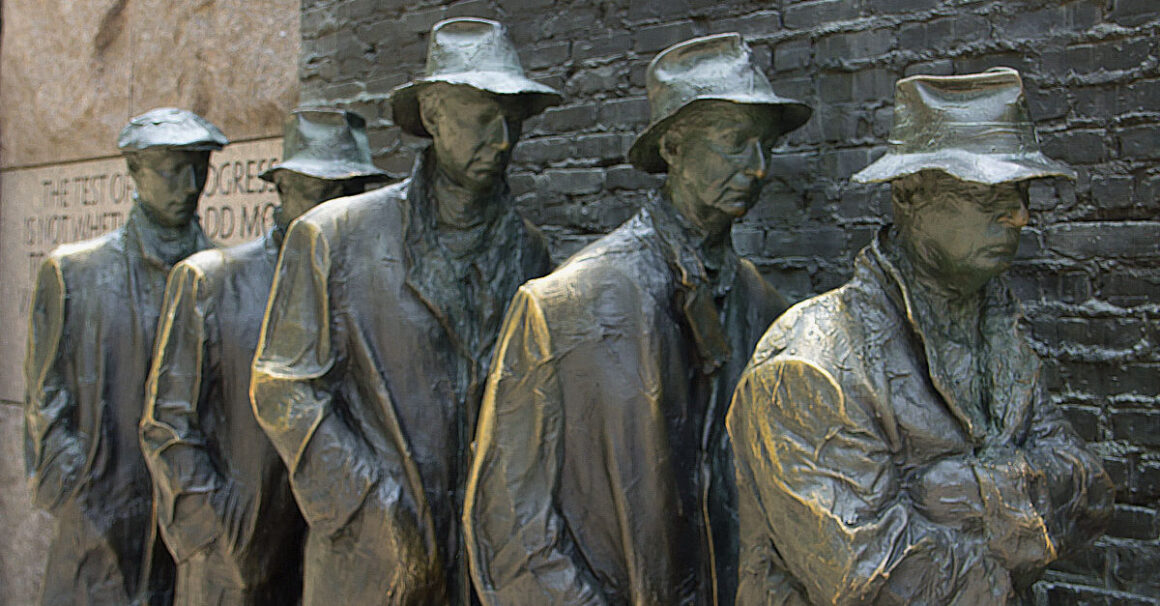

Unemployment is a consequence of the endless drive of capitalism towards increasing profits. Capitalism has regular industrial cycles in which production increasingly ramps up, before the market inevitably crashes. Over the course of an industrial cycle, capital draws more labourers into the workforce during the boom period, until the inevitable crisis occurs and workers are thrown out of their jobs.
The deeper and longer the recession, the more workers will experience unemployment, and the longer mass unemployment will persist. However, even in the boom period, unemployment never goes away; it is built into the system. Karl Marx called this the “reserve army of labour”.
At the beginning of the cycle, as the economy recovers from the last downturn and wages are relatively low because unemployment is high. Demand grows, employers take on more workers to meet this demand and workers have to take what they can get.
As the economy improves and the demand for workers starts to outstrip the supply, workers can afford to be more discerning and wages can be forced up. To save on wages, capitalists try to out-compete each other by investing in machinery so that they are less reliant on a large workforce.
Although this may be a solution for individual capitalists, for the system as a whole it tends to reduce the rate of profit because profit is only generated by living labour, i.e. by workers. Machinery without workers just stands idle. So the more capital is tied up in buying expensive computer system, artificial intelligence and robotics and the less it spends hiring workers, the lower the return on its investment.
It is this falling rate of profit that causes capitalists to withhold investment, close factories and offices. Their products, be they social services or commodities for the market, are still needed, but they cannot be produced at an adequate rate of profit. Unemployment is caused by the profit system, not by labour suddenly becoming unnecessary.
The same economic laws apply to public sector workers. Although they are not directly employed by capitalists, the state defends the interests of the ruling class. It is the bosses’ demand for lower taxes on their profits that has led to austerity and the shrinking of the NHS, social care, etc.
At times of crisis, the capitalists will seize greedily upon the expansion of the reserve army of labour to lower the wages and worsen conditions. Any worker that attempts to resist can simply be fired and replaced from the reserve pool. This acts to keep wages supressed, thereby keeping the working class in relative poverty.
The sudden growth of mass unemployment also exposes the anarchy and dysfunctionality of capitalism. Useful work is not done because it is no longer profitable to investors. Millions of workers are condemned to poverty and idleness, while social wealth is concentrated in the hands of fewer and fewer.
The only solution to this is to plan the economy based around what society actually needs, not where investors can generate the most profit. This is known as socialism.
The claim of nationalists (some of whom even claim to be socialists) that unemployment is caused by immigration, is utterly false. Capitalism is an international system which covers the whole globe, and that causes an international division of labour. In the UK migrant labour is primarily used to fill skills gaps. If these gaps were not filled production would contract, causing more unemployment.
Migrant labour also provides a pool of sub-minimum wage and often legally unprotected workers for jobs that no British worker will take. Nationalist solutions to unemployment are therefore doomed to failure. They only serve to divide and weaken the working class, while leading to a further contraction of world trade and consequently production.
Through class struggle, workers in the UK have been able to win improvements in wages and working conditions from their employers, as well as concessions from the state in the form of welfare benefits and healthcare.
The bosses frequently attempt to lay the blame for unemployment on the workers’ struggles to win higher wages, safer and less ruinous working conditions and to use the existence of benefits to claim that unemployment is no longer as “serious” an issue as it has been in the past.
This is nonsense. Higher wages and better conditions simply mean that the workers receive a higher proportion of the profit, which they alone generate. Additionally, the benefits received by unemployed workers rarely cover the cost of living over a long period, leading to inevitable destitution. And it is working class families and communities that pick up the tab for that.
Most importantly of all, these reforms are both a result of class struggle. If the working class does not fight to defend and extend them, the bosses will whittle away and abolish them. In times of crisis in particular, workers need to unite both to fight against unemployment and defend the rights they have won against the assault of the capitalists.